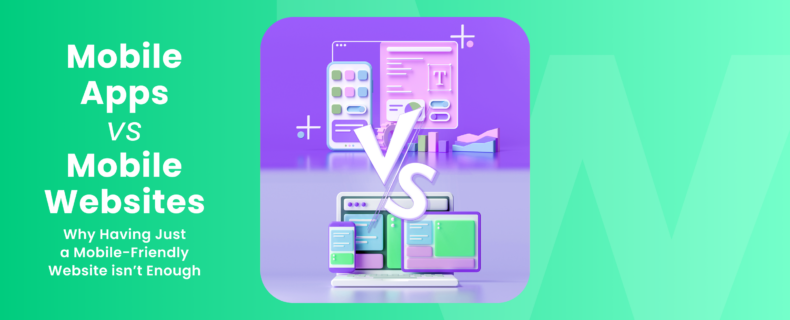In today’s fast-paced digital landscape, where smartphones have become an extension of ourselves, businesses are engaged in a relentless battle to capture their audience’s attention and establish a strong online presence. Amidst this ever-evolving scenario, the debate between mobile websites and mobile apps has taken center stage. While both options offer unique advantages, it’s becoming increasingly clear that mobile apps hold a distinct edge in this contest. In this article, we delve into the reasons why mobile apps triumph over mobile websites and why they have become the preferred choice for businesses looking to dominate the digital realm.
The Power of a Shopify Mobile App: A Game-Changer for Your Business
- Enhanced User Experience: A mobile app allows your customers to browse products, add items to their cart, and complete transactions with unparalleled ease and speed. This streamlined experience can lead to increased customer satisfaction and higher conversion rates.
- Direct Marketing Channel: With push notifications, you can directly engage with your app users, notifying them of promotions, discounts, and new arrivals. This real-time communication helps you stay connected and top-of-mind.
- Offline Accessibility: Mobile apps can provide certain functionalities even when users are offline, ensuring continuous engagement and accessibility to your products.
A Tailored Experience
The hallmark of a superior user experience is personalization. Mobile apps excel in delivering a tailored experience that resonates with users on a deeper level. Designed to seamlessly integrate with a smartphone’s operating system, mobile apps provide a user interface that’s optimized for specific devices. This optimized design leads to faster load times, smoother navigation, and an overall seamless interaction. Unlike mobile websites, which may need to adjust to various browsers and screen sizes, mobile apps create an environment free from distractions, resulting in higher engagement rates, longer session durations, and ultimately, enhanced conversions.
The Power of Personalization
In the era of data-driven marketing, personalization has emerged as a potent tool for capturing and retaining customer attention. Mobile apps are a goldmine of user data, offering businesses valuable insights into user preferences, behaviors, and interactions. Armed with this information, businesses can craft customized experiences that resonate with individual users, thus increasing user engagement and loyalty.
Mobile websites, while capable of delivering personalized experiences to some extent, often struggle to match the depth of personalization that mobile apps offer. The ability to deliver highly targeted content, recommendations, and promotions sets mobile apps apart as a superior engagement tool.
Seamless Offline Access
In an increasingly connected world, it’s easy to overlook the significance of offline accessibility. Mobile apps, however, embrace this challenge by enabling partial or complete offline functionality. Users can continue to interact with the app, browse products, and even initiate purchases, even when their internet connection is unstable or non-existent. Once reconnected, the app seamlessly syncs the user’s actions, creating a fluid and uninterrupted experience that engenders trust and convenience.
Mobile websites, unfortunately, lack this level of uninterrupted engagement. While some offline functionalities can be implemented in web applications, the seamless and reliable offline experience offered by mobile apps remains unmatched.
Direct Communication Channel: Push Notifications
When it comes to direct and instantaneous communication, push notifications are the superhero of mobile apps. These notifications serve as a bridge between the app and its users, delivering timely updates, announcements, and personalized offers. What sets push notifications in mobile apps apart from their counterparts on mobile websites is their ability to reach users regardless of whether the app is open or not.
Mobile websites, while capable of sending notifications, often rely on browser-based notifications, which might not be as noticeable or effective in grabbing users’ attention. Mobile apps cut through the noise and establish a direct line to users, increasing the likelihood of re-engagement and fostering a deeper connection.
Speed and Performance
In the realm of user satisfaction, speed and responsiveness play a pivotal role. Mobile apps, developed to harness the power of a smartphone’s hardware and software, offer an inherently superior performance compared to mobile websites. By leveraging device-specific features such as touch gestures, cameras, and GPS, mobile apps create a more immersive and efficient user experience.
Mobile websites, while striving to offer consistent performance across a variety of devices, often face challenges in achieving optimal speed and responsiveness. The need to accommodate different browsers, screen sizes, and hardware specifications can lead to slower load times and less fluid interactions.
Fortifying User Trust: Security and Reliability
In the age of data breaches and privacy concerns, user trust and security have emerged as critical factors in the success of any digital platform. Mobile apps, distributed through trusted app stores that impose stringent security measures, undergo a rigorous vetting process that instills confidence in users. This assurance goes a long way in establishing a sense of trust that is often harder to achieve with mobile websites.
While mobile websites can also offer secure environments, the familiarity and reputation of app stores contribute to a higher level of user confidence in mobile apps.
The Final Verdict: Mobile Apps Prevail
In the ongoing contest between mobile websites and mobile apps, the latter emerges as the clear victor. From delivering a tailored user experience to offering advanced personalization, seamless offline access, direct communication through push notifications, enhanced performance, and fortified security, mobile apps consistently outshine their counterparts.
In a rapidly evolving digital landscape, the power and potential of mobile apps are undeniable. As user expectations continue to evolve and technology advances, the role of mobile apps in driving business success will only become more pronounced.
So, whether you’re a business owner, a service provider, or an aspiring entrepreneur, consider harnessing the power of mobile apps to elevate your digital presence and engage your audience on a deeper level.
Ready to Take the Plunge? Try Mowico for Free!
Looking to turn your business idea into a powerful mobile app? Discover the possibilities with Mowico, the no-code eCommerce app builder. With Mowico, you can create stunning and functional apps without the need for extensive coding knowledge. Experience the potential of mobile apps firsthand by signing up for a free trial today and unlock new avenues for business growth in the digital world.






